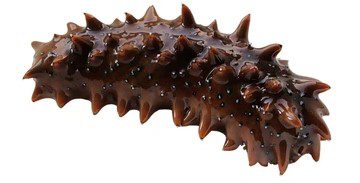

Sea cucumber can be a beneficial part of your pup’s diet when cooked and used in moderation. This sea creature contains valuable vitamins and minerals such as iron, vitamin B3, and zinc, all of which can help regulate organ functions and support blood circulation and nerve health. Sea cucumbers have anti-inflammatory, anti-bacterial, and anti-parasitic properties, which can assist in treating canine arthritis, muscle strains, and chronic diseases like cancer.
Sea cucumber is an excellent source of protein and contains many vitamins that are beneficial for canine health. These vitamins include vitamin A, vitamin B1, vitamin B2, and vitamin B3, which help support neurological and circulatory health. Sea cucumber is also loaded with minerals like calcium, iron, magnesium, and zinc, which are all essential for good organ functioning. Additionally, its anti-inflammatory, anti-bacterial, and anti-parasitic properties make it an effective medicine for dogs suffering from chronic diseases like cancer.
Sea cucumber that has not been properly prepared can have high salt concentrations that can lead to dehydration and digestive issues in your pooch. Ingesting live sea cucumber can be very dangerous as these animals release a poisonous substance called holothurin when threatened. Finally, sea cucumbers have blood-thinning properties, so dogs that are already on a blood thinner should not consume this food or any supplement containing it.
Cooked sea cucumber intended for human consumption can be given to dogs as an occasional treat. Some pet supplements also include sea cucumber as an ingredient, and you should always consult with your veterinarian before giving your pup this or any new supplement. When giving cooked sea cucumber, make sure you give the appropriate amount for your pup’s age, size, and health condition.
Sea cucumber is a marine animal found in the ocean mostly around Asia. It is also known as bêche-de-mer, and is commonly found washed up on beaches. It has been used in traditional Chinese medicine for centuries and is known to help with human health in many ways. In recent times, pet owners have also become aware of the benefits it offers their canine companions. Sea cucumber can be a beneficial part of your pup’s diet when cooked and used in moderation. Not only does it contain beneficial vitamins and minerals like calcium, iron, and zinc, but it also has anti-inflammatory, anti-bacterial, and anti-parasitic properties which have effective in treating canine arthritis, muscle strains, and chronic diseases like cancer.
When serving your pup sea cucumber, it's important to ensure it has been properly cooked to reduce its salt content, as high levels of salt can lead to dehydration and digestive issues. Additionally, dogs should not eat live sea cucumber due to its poisonous properties, and if your pup is already on a blood thinner, sea cucumber or any supplement containing its ingredients should not be given. If you'd like your pup to enjoy this food, cooked sea cucumber intended for human consumption in appropriate amounts can be given as an occasional treat or as part of a supplement if recommended by your veterinarian.
If you're looking for other natural aquatic options for your pup, salmon is an excellent source of omega 3 fatty acids essential for numerous bodily functions and promotes healthy skin and a glossy coat. Shrimp is another great option with protein, calcium, and vitamins B12 and E.
Are cooked sea cucumbers safe for puppies?
Yes, cooked sea cucumbers that are at the appropriate size for your pup’s age, weight, and health condition are safe for puppies, as long as the salt content is low. It is not recommended to give uncooked or live sea cucumbers to puppies.
Have you ever given your pup sea cucumber or a supplement containing its ingredient? Tell us about your experience in the comments!
No matter what type of food you choose, make sure you always take into account your pup's age, size, dietary requirements, and any existing medical conditions. Providing your pup with a balanced and nutritious diet is essential to keeping them healthy and happy!